“Uprooted: An American Experience,” an exhibition about the incarceration of over 127,000 Japanese Americans for years during WWII, has re-opened at the California Museum in Sacramento, California. Completely redesigned by C&G Partners, the rebuilt exhibition covers this true and shameful American tragedy before, during and after the War.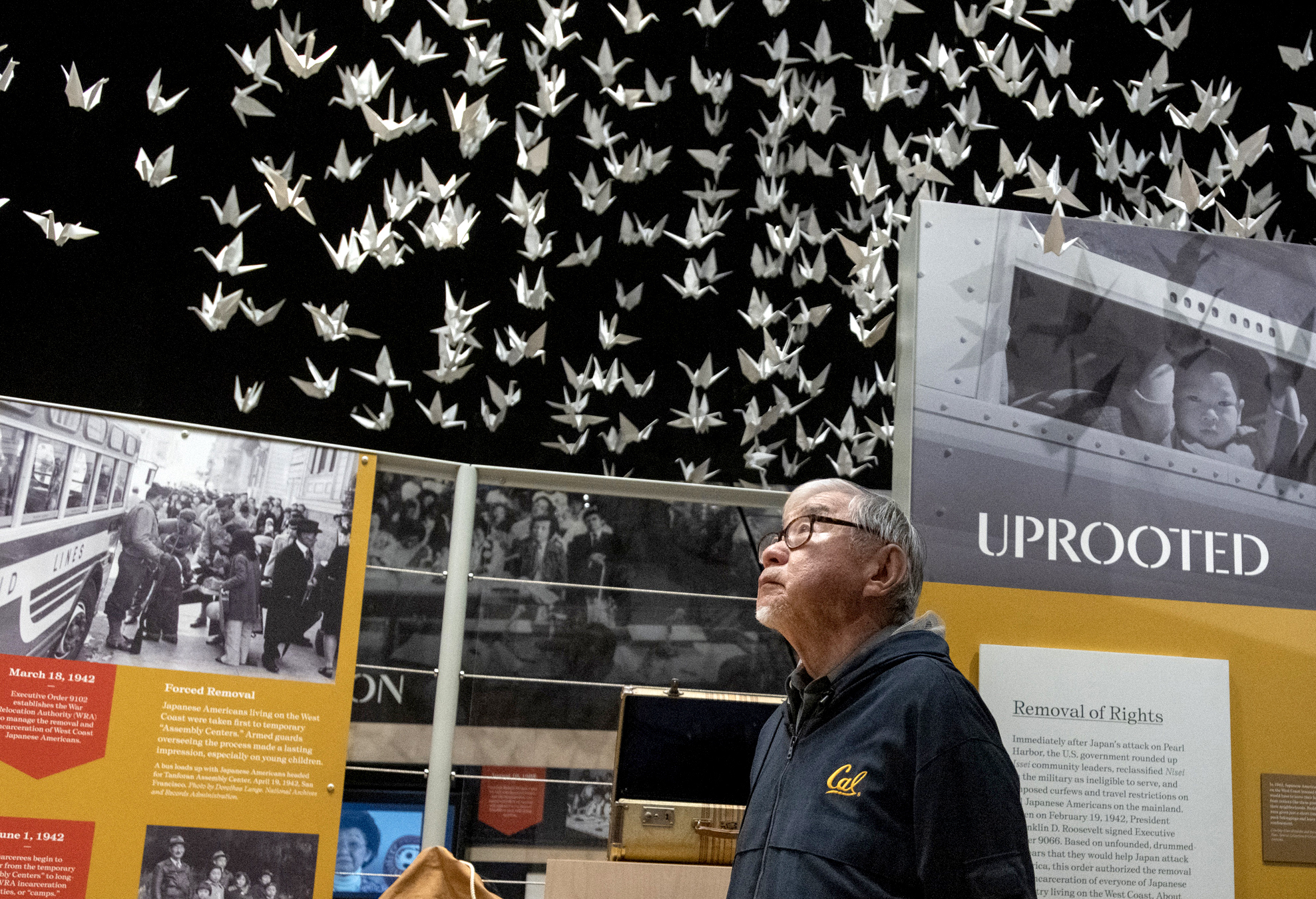
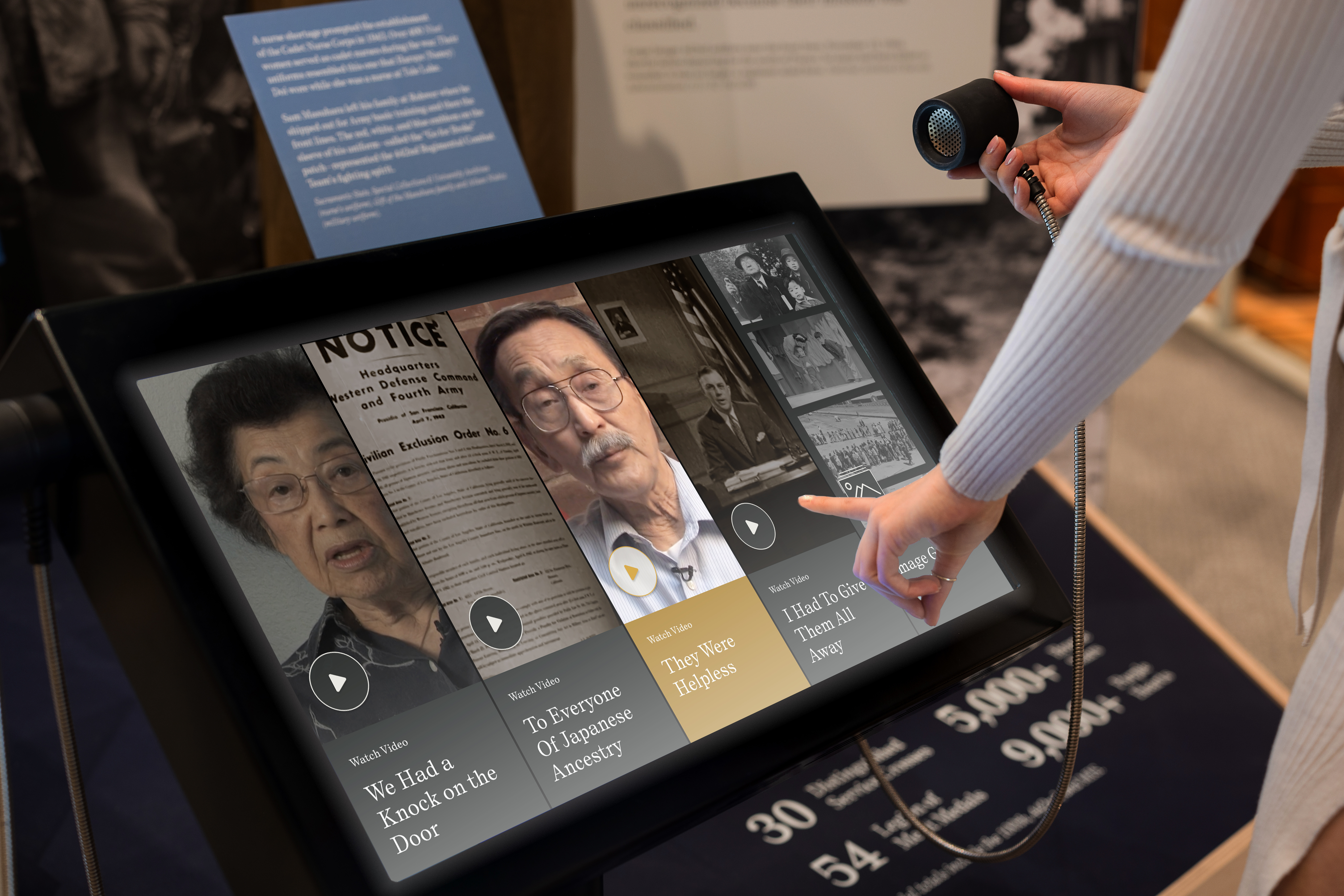
The exhibition uses interactive oral histories, scale models and 1:1 recreations of the camps, and poignant personal memorabilia to ground the story in the reality of what actually happened in the United States during that fateful time. During the US conflict with Japan in WWII, over 127,000 Japanese American citizens of the United States were forcibly taken from their homes by the thousands and incarcerated in desperate conditions in distant camps. The US feared spies or sabotage from its own citizens.
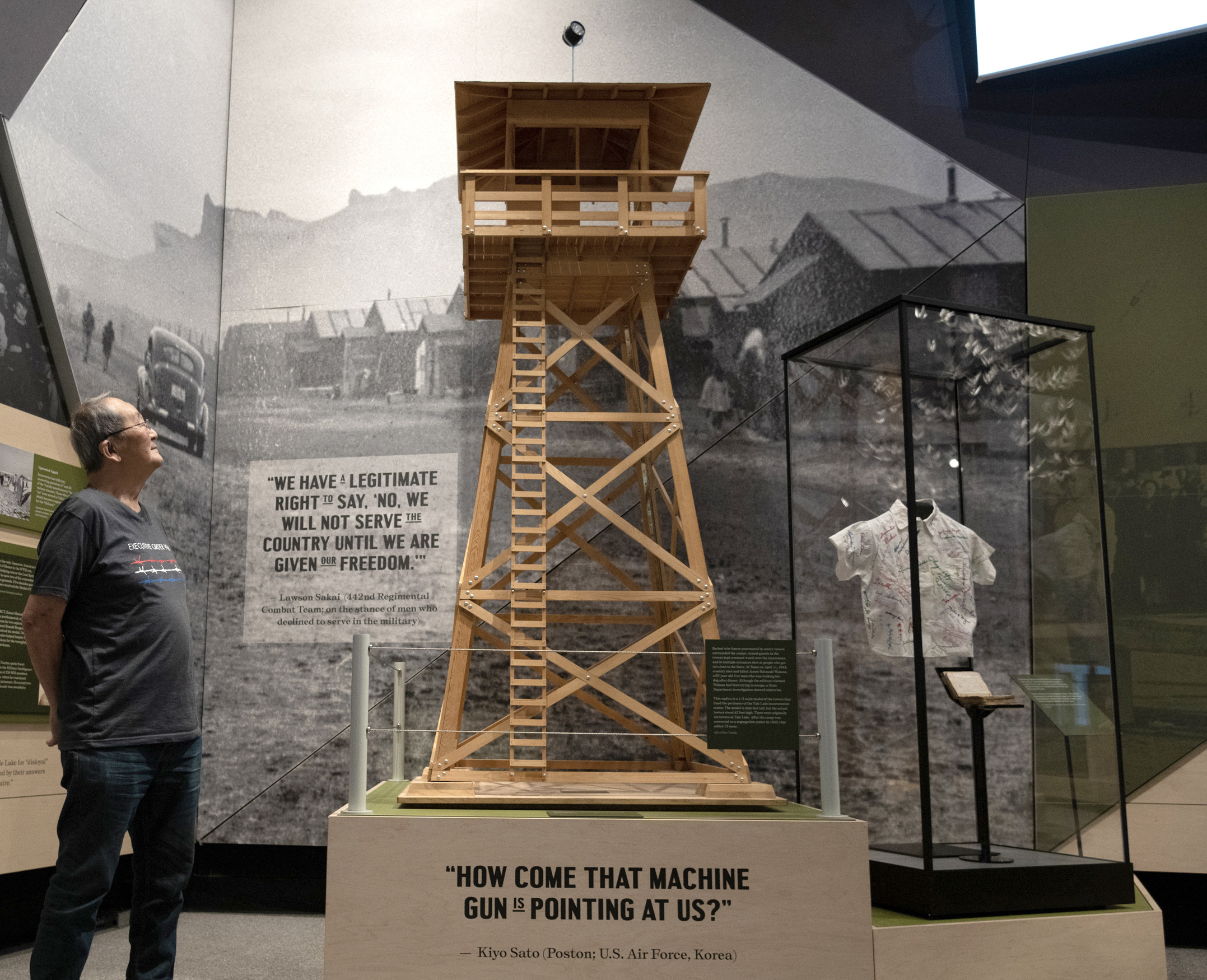
The opening of the exhibition was attended by members of the Japanese American community of northern California who experienced the camps first hand as children, and who worked with the Museum and the design team on the project. Many of the objects on display in the show are from their own personal possessions, and were given to remind future generations to learn from the lessons of the past.
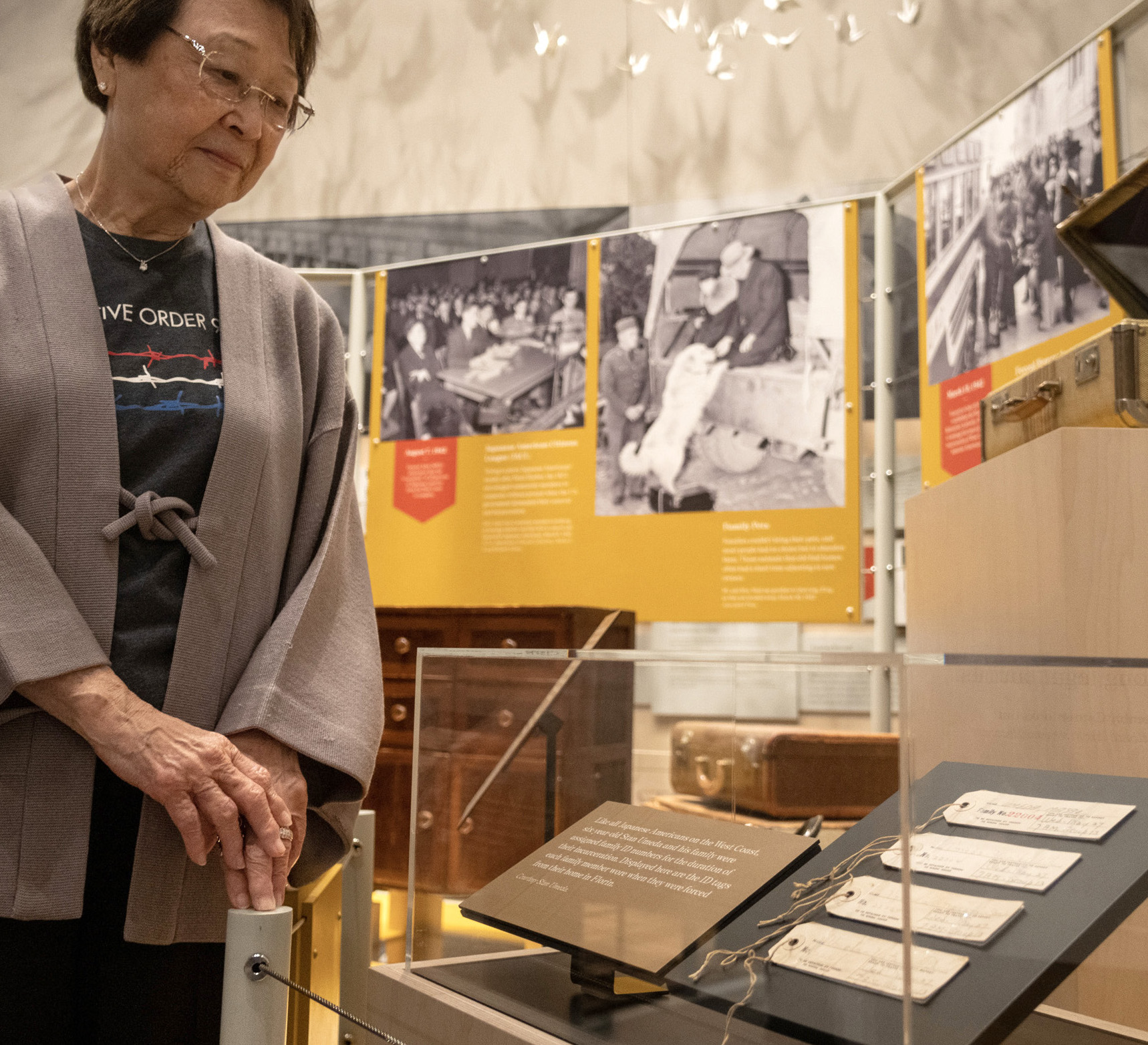
“…unlike the previous rendition of ‘Uprooted’ which first opened in 2007, the new version goes beyond the reparations and redress given to survivors in the 1980s. The last part of the exhibit ties the story of Japanese American incarceration to the present day and urges visitors to speak out against injustices.” — The Sacramento Bee
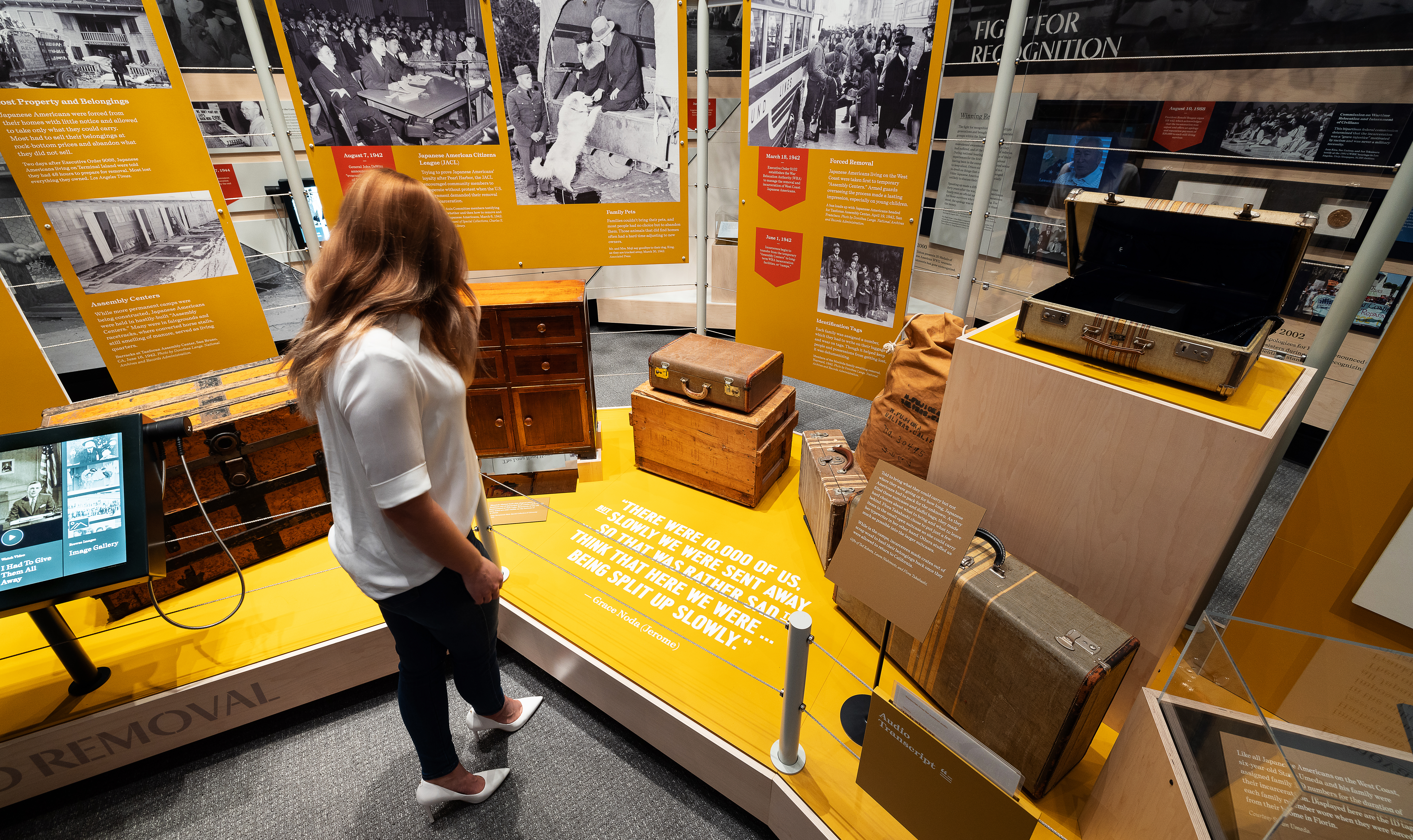
When Japanese Americans were instructed to report to central locations to be relocated, they were permitted only a few possessions, carried in suitcases and chests. Everything else, including their homes and property, had to be left behind, and often illegitimately fell into the hands of others.
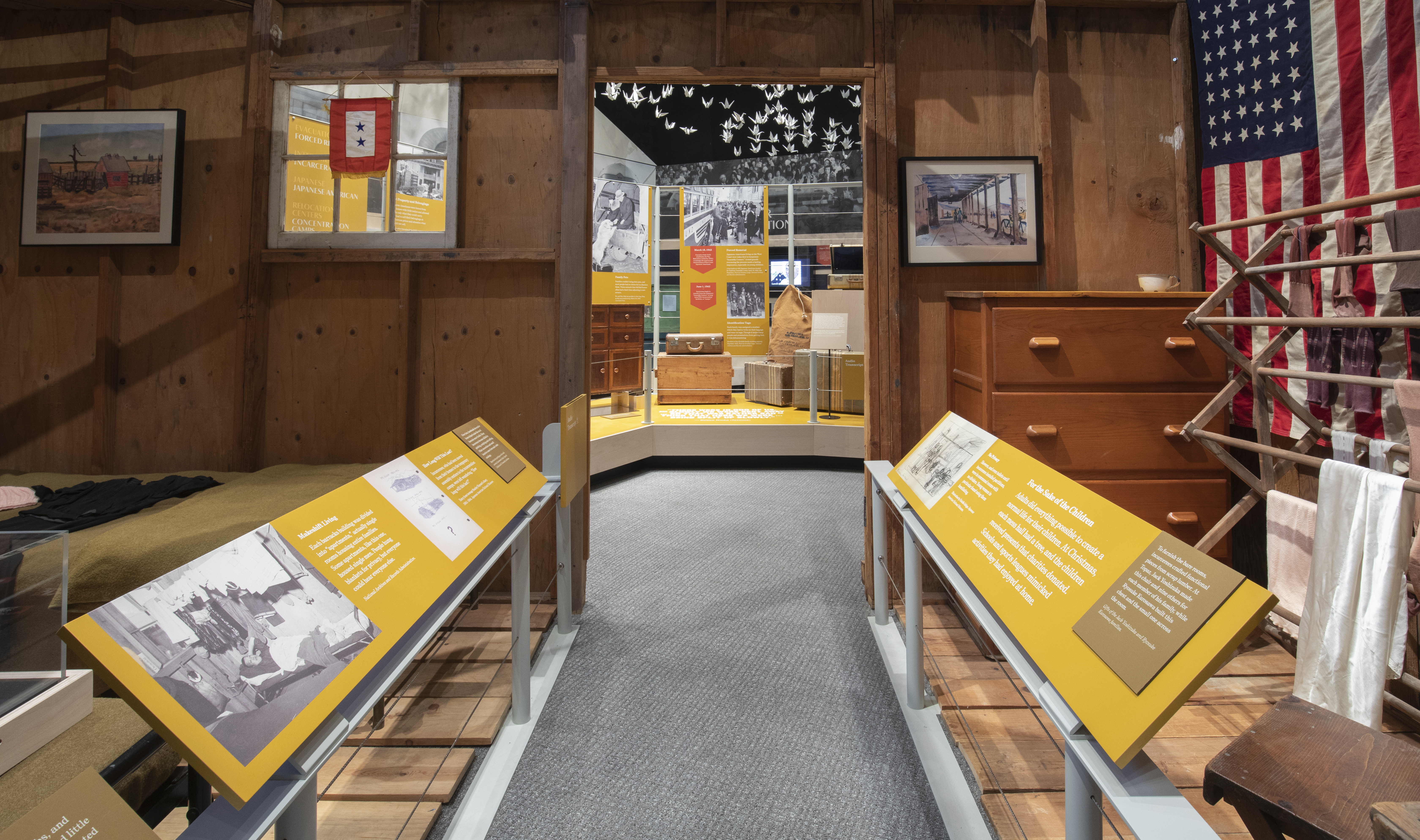
A centerpiece of the experience is a 1:1 recreation of the interior of a barracks, the residential structures that the far-flung dusty camps would use to house the incarcerated Japanese Americans.
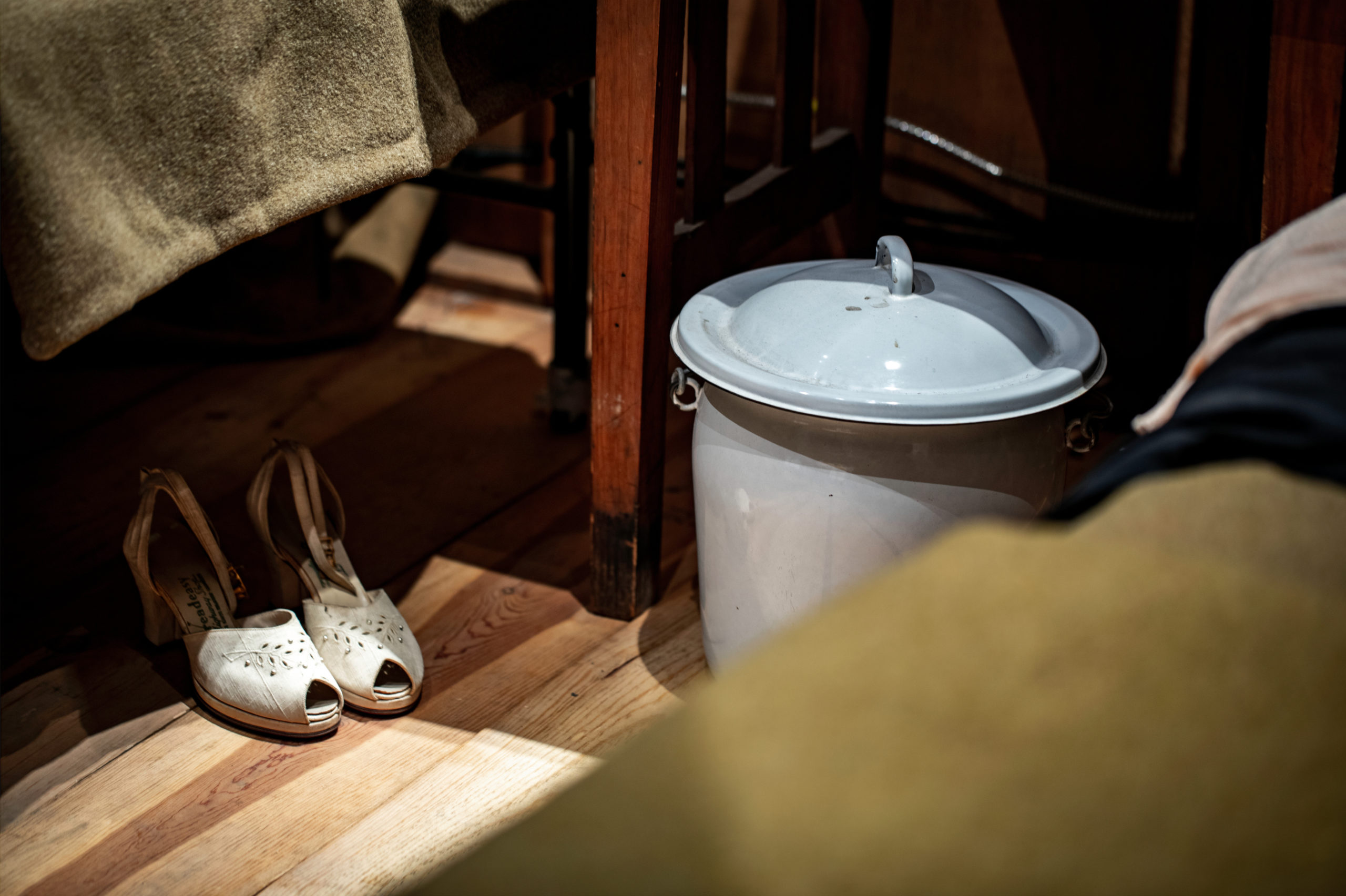
The Japanese tradition of senbazuru — folding 1,000 paper cranes — is said to grant a wish to the person who completes the task. A cloud of 1,000 tsuru — cranes — floats over the exhibition, expressing a wish that this kind of atrocity will never happen again.
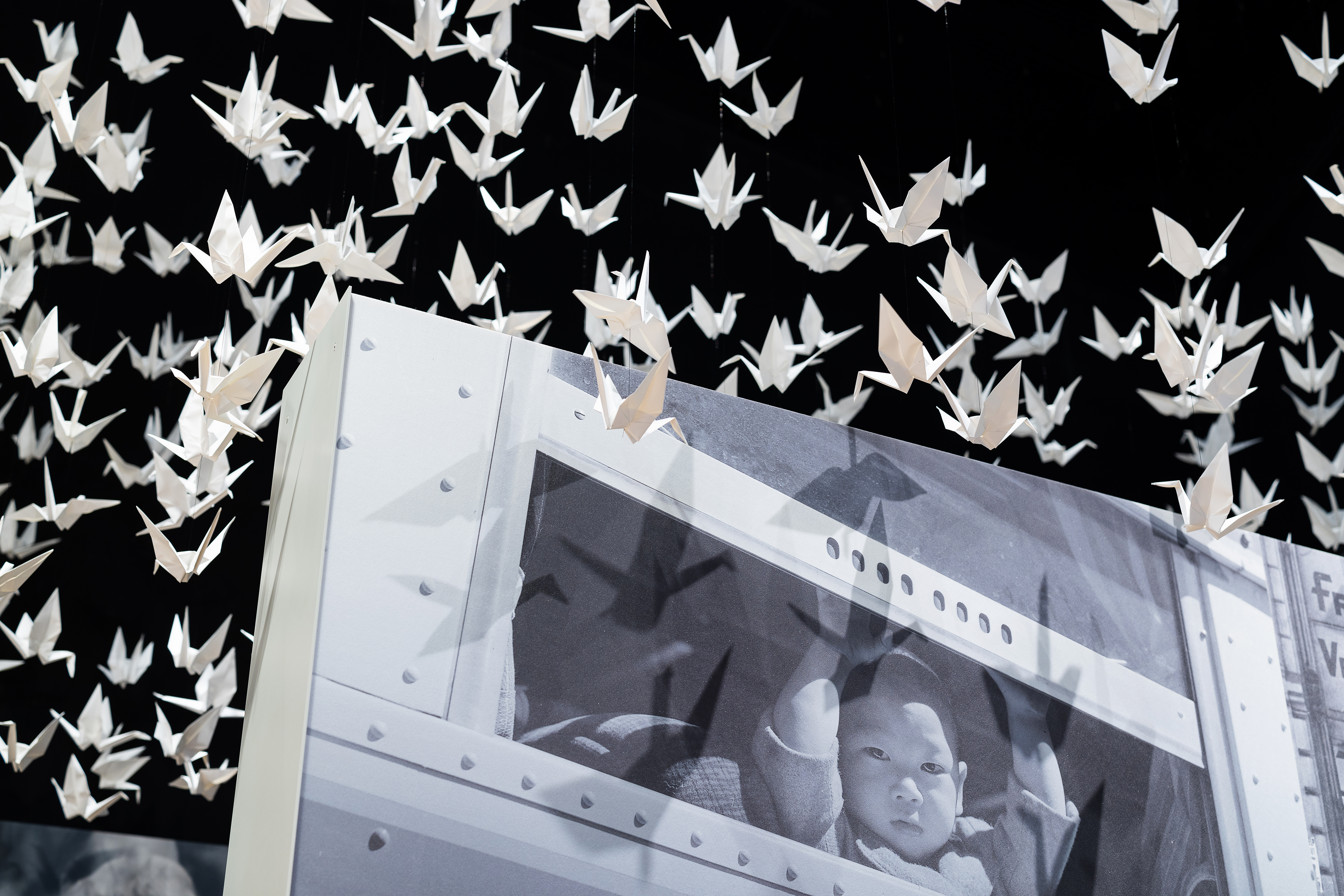
![C&G Partners [logo]](https://www.cgpartnersllc.com/wp-content/uploads/2025/09/CGP20_black_orange_RGB.png)
